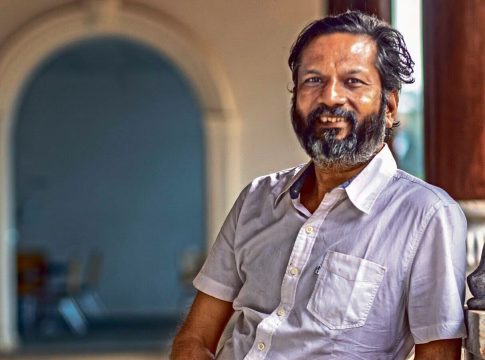The Future of Work in an AI-Driven World: Insights from Zoho’s Sridhar Vembu
As the conversation around artificial intelligence (AI) and its impact on employment intensifies, tech entrepreneur and Zoho founder Sridhar Vembu offers a unique perspective on this evolving landscape. While many fear widespread job displacement due to automation, Vembu argues that the future may not be as bleak as it seems.
AI Will Not Eliminate All Jobs
In a recent post on X (formerly Twitter), Vembu addressed common anxieties about automation, specifically regarding the potential for AI to take over software development. He stresses that we are far from a reality where all jobs could be automated. Vembu’s assertion is clear: even if AI significantly disrupts certain sectors, human beings will still have essential roles to fulfill.
The Economic Challenge Ahead
Vembu emphasizes that the challenge posed by AI is not merely technological but fundamentally economic. If AI and robotics do replace numerous positions, the real issue lies in how society will support itself amidst a landscape of increasingly cheap goods that come from largely automated processes.
-
Automation’s Cost Benefits: Vembu suggests that the prices for AI-produced goods could plummet. Imagine a world where the cost of goods approaches zero—similar to how we perceive the air we breathe. In such a scenario, consumer complaints may significantly diminish.
- Value of Human-Centric Roles: He also highlights that the remaining jobs—those that can’t be easily automated, such as caregiving, education, and various artisanal trades—could provide ample financial rewards. These roles may see increased compensation, allowing those employed in them to afford even the most deeply discounted goods.
A Solution for Economic Distribution
Vembu posits two potential outcomes for this shift toward automation:
-
Dramatic Price Reductions: As automation takes over manufacturing, the cost of products could drastically decline. If essential goods are virtually free or extremely low-cost, people’s financial burdens may lessen substantially.
- Higher Wages for Unique Skills: Alternatively, jobs that require human empathy and creativity—like caretaking, farming, and the arts—might command higher salaries, enabling a fair distribution of wealth in the economy.
The Role of Governance
To navigate this changing economic landscape, Vembu advocates for proactive government intervention. He emphasizes the importance of breaking down monopolies, particularly in the tech sector, to ensure that the benefits of automation are shared equitably. Effective governance will play a critical role in keeping the market competitive and affordable for the average consumer.
The Bigger Picture
While the fear of job loss due to AI adoption is real, experts like Vembu argue that we should look beyond just the technology and examine the broader economic implications. His perspective serves as a reminder that the true challenge may lie in how society chooses to distribute wealth in an increasingly automated world.
As this narrative unfolds, it’s crucial to engage in discussions about policies that could lead to equitable job transitions and fair economic distribution in an AI-dominated future. In a world of rapid technological change, the key will be ensuring that both human workers and AI technologies can coexist synergistically.

Writes about personal finance, side hustles, gadgets, and tech innovation.
Bio: Priya specializes in making complex financial and tech topics easy to digest, with experience in fintech and consumer reviews.

